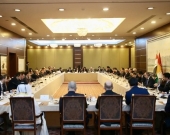US and Israel lose UNESCO voting rights

The US has not paid its dues to UNESCO due to the decision by world governments to make Palestine a UNESCO member in 2011. Israel suspended its dues at the same time and also lost voting rights on Friday.
Under UNESCO rules, the US had until Friday morning to resume funding or explain itself, or it automatically loses its vote. A UNESCO official, who was not authorised to speak publicly about the issue, said nothing was received from either the US or Israel.
"Nothing was received from the United States," the source said. Two separate diplomatic sources also confirmed the deadline had been missed.
The US decision of not paying UNESCO was blamed on US laws that prohibit funding to any United Nations agency that implies recognition of Palestinian demands for their own state.
There was no immediate comment at the office of the US envoy to the UN agency.
The withdrawal of US funding, which to date amounts to about $240m or some 22 percent of UNESCO's budget, has plunged the organisation into a financial crisis, forcing it to cut programmes and slash spending.
"I regret to say that I'm seeing, in these last two years ... a declining American influence and American involvement,” Bokova told The Associated Press.
Director General for UNESCO, Irina Bokova, lamented the changes that are not only seeing America silenced within her organisation but also bringing UNESCO financially to its knees.
"I can't imagine how we could disengage with the United States at UNESCO. We are so intertwined with our message. What I regret is that this decision became so divisive and triggered this suspension of the funding," she added.
Bokova said she accepts political reality and would find ways for UNESCO to continue its work, despite a 2014 budget that's down by an estimated $150 million.
Weakening Influence
Some fear that a weaker US presence will lead to growing anti-Israeli sentiment within UNESCO, where Arab-led criticism of Israel for territorial reasons has long been an issue.
"We won't be able to have the same clout," said Phyllis Magrab, the Washington-based US National Commissioner for UNESCO. "In effect, we (now won't) have a full tool box. We're missing our hammer."
Israel's ambassador to UNESCO, Nimrod Barkan, told The Associated Press that his country supported the US decision, "objecting to the politicisation of UNESCO, or any international organisation, with the accession of a non-existing country like Palestine."
Elias Sanbar, Palestinian Ambassador to UNESCO told Al Jazeera: "We need them (the United States) to be active. By taking this decision, first of all, they have created big problems for UNESCO, but they have also lost part of their role and we need their role."
UNESCO designates World Heritage sites, promotes global education and supports press freedom among other tasks.
The loss of voting rights for the key UNESCO member comes as Washington tries to keep US-brokered peace negotiations between Israel and Palestinians afloat.
Both parties have signaled the lack of progress in the talks, revived in July after a three-year hiatus but recently stymied over Israeli plans to continue building Jewish settlements in the occupied West Bank and East Jerusalem.
US Secretary of State John Kerry has warned Israel that a third Palestinian uprising is at stake if the talks fail. Kerry has set a nine-month schedule for a peace deal.
The Palestinians have so far failed in their bid to become a full member of the UN, but their UNESCO membership is seen as a potential first step towards UN recognition of statehood.
The US has characterised UNESCO's move as a misguided attempt to bypass the two-decade old peace process. Washington says only a resumption of peace talks ending in a treaty with Israel can result in Palestinian statehood.
Al Jazeera a












